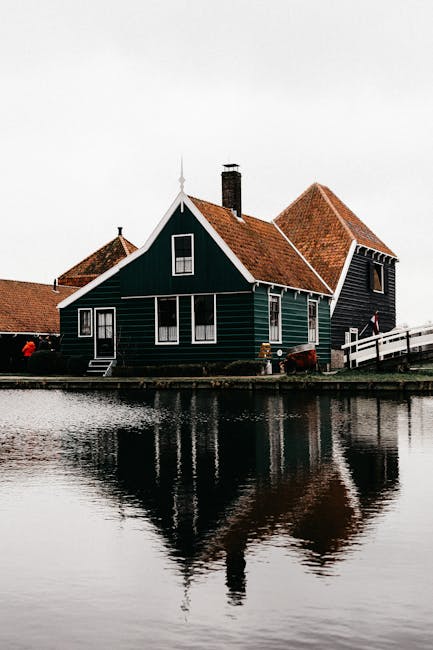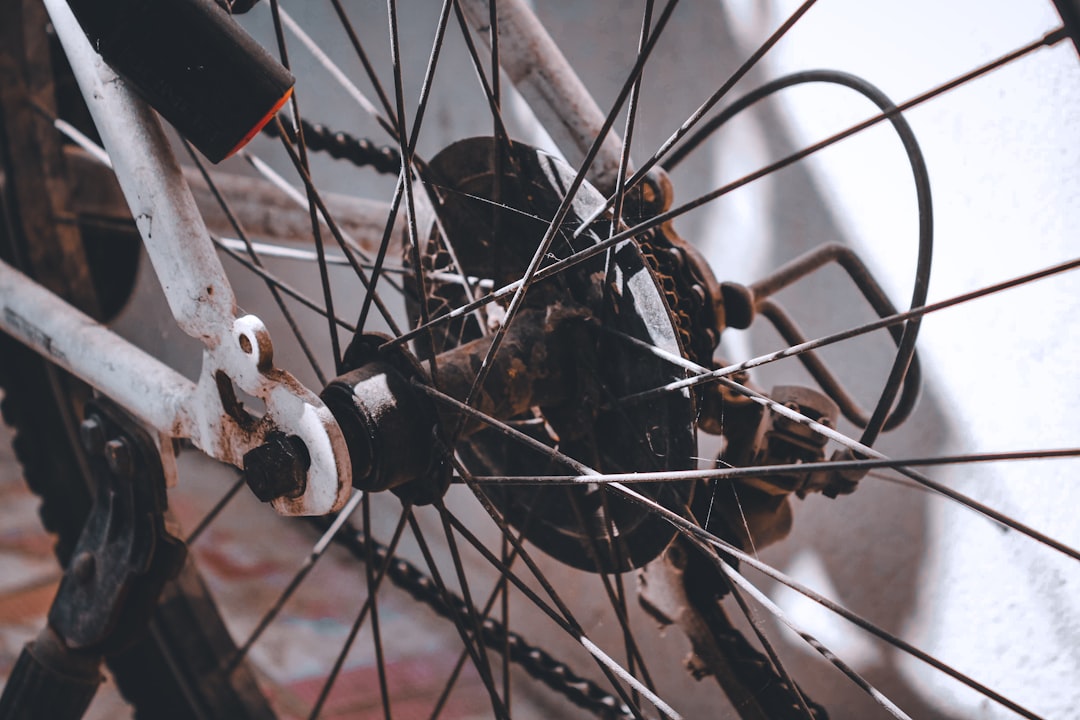Recovery from Hurricanes and Floods: Heating and Cooling Systems
Heating and cooling systems, like most other household appliances, can be affected by flooding or damage from natural disasters. Fortunately, replacing your [url]HVAC [/url]system after a flood or hurricane is typically not necessary; with little expert advice and attention to the smallest details, you can have your home back to normal in no time. Here are some pointers on how to clean up and repair your home’s heating and conditioning systems after storm damage or floods. [url]This website[/url] has all you need to [url]discover more[/url] info about this topic. Check it out!
Most people in the U.S. cannot live without heating and cooling systems, which is why they are critical to recovery efforts following a hurricane or flood. After a storm, flooding, or other natural disasters, it is vital to restore your [url]heating and cooling[/url] system as soon as possible. This stage is easy to ignore since you may be preoccupied with more immediate concerns such as safety, shelter, food, and water. However, without heat or air conditioning in the hot summer months or frigid winter months, your home will quickly become uninhabitable. Many things can go wrong with an HVAC unit after a flood, including shorted-out components, broken parts, refrigerant gas loss, and even unclean filters, which can cause the system to stop working correctly. Hurricanes and floods can cause damage to your heating and cooling systems, which can be expensive to repair if left neglected for an extended period of time. In times like this, it’s important that you contact a company that specializes in heating, ventilation, and air conditioning services to come out to your home or business as soon as possible.
It is not uncommon for water to penetrate your home’s duct system during a flood, causing mold growth as well as significant damage to the system itself. One solution is to install an energy-efficient whole-home dehumidifier with automatic pump out capability. It is also critical to turn off circuit breakers in any areas with standing water. If all else fails, call a professional who specializes in flood restoration and HVAC repair to do the work for you.
Finding a heating and conditioning contractor to help with storm or flood recovery might be difficult. However, you can take some efforts to identify the best contractor for the project. When looking for a contractor to help with hurricane or flood damage, consider the following factors: cost, experience, availability, insurance coverage, liability coverage, and licensing requirements in your state/province/territory.
Some HVAC contractors will require you to purchase new equipment from them before they begin work on your system, which might be beneficial if you are unsure of what type of unit is ideal for your home. If possible, get more than one estimate so you’ll know how much different contractors charge for labor and materials. You can [url]read more[/url] on the subject [url]now![/url]
 Air Ducts Cleansing as well as Cooling And Heating Providers Air ducts can harbor a range of impurities, ranging from germs to dust, and also need normal cleaning to keep ideal air top quality. Dirty ductwork can even make it hard to discover the visibility of pollutants inside the home. If dust is visible originating from the vents cleaning, possibilities are your air ducts are dirty. The very best method to stop an accumulation of dirt airborne ducts is to use air filters in your air duct cleaning. Ensure that your air ducts are well-insulated and not located in moist or moist locations. Maintaining your air ducts tidy will certainly aid them operate effectively for several years. When you need air duct cleaning, speak with a heating and cooling professional. They will have the ability to identify the best remedy for your circumstance. The very first step is to determine the type of air ducts you have. The type of duct that is utilized in the home will certainly determine which cleansing procedure is right for you. In addition to a detailed duct cleaning, a service provider may advise applying chemical biocides. These chemicals are created to kill germs that cause mold. Learn more about deep cleaning for the air ducts. Some of these therapies can additionally be related to the real estates of the cooling and heating devices, which can protect against the spread of mold and mildew and dirt bits. Cooling and heating professionals use specialized tools to tidy air ducts
Air Ducts Cleansing as well as Cooling And Heating Providers Air ducts can harbor a range of impurities, ranging from germs to dust, and also need normal cleaning to keep ideal air top quality. Dirty ductwork can even make it hard to discover the visibility of pollutants inside the home. If dust is visible originating from the vents cleaning, possibilities are your air ducts are dirty. The very best method to stop an accumulation of dirt airborne ducts is to use air filters in your air duct cleaning. Ensure that your air ducts are well-insulated and not located in moist or moist locations. Maintaining your air ducts tidy will certainly aid them operate effectively for several years. When you need air duct cleaning, speak with a heating and cooling professional. They will have the ability to identify the best remedy for your circumstance. The very first step is to determine the type of air ducts you have. The type of duct that is utilized in the home will certainly determine which cleansing procedure is right for you. In addition to a detailed duct cleaning, a service provider may advise applying chemical biocides. These chemicals are created to kill germs that cause mold. Learn more about deep cleaning for the air ducts. Some of these therapies can additionally be related to the real estates of the cooling and heating devices, which can protect against the spread of mold and mildew and dirt bits. Cooling and heating professionals use specialized tools to tidy air ducts  LCS is Obtaining a New Warehouse Previously this year, the Pentagon introduced that LCS will certainly be obtaining a brand-new storage facility for its chemical production center. Discover more info on this website now! The new facility will certainly house the firm’s manufacturing and r & d laboratories. Learn more about warehouse on this website here! The facility will house two brand-new buildings on 3 acres. Each will certainly house high interstitial room and also considerable laboratory support solutions. Check it out! The LCS design-build team developed innovative solutions to meet the needs of the client, and the job is currently on the right track to be completed on schedule. Along with designing and producing complete automated storehouses, LCS additionally supplies industrial automation and also product handling systems. Their services can be located in many sectors, from the pharmaceuticals to the food industry. Read more here now! Every market that needs to have top notch processes as well as products can benefit from LCS’ solutions. Read more on this website
LCS is Obtaining a New Warehouse Previously this year, the Pentagon introduced that LCS will certainly be obtaining a brand-new storage facility for its chemical production center. Discover more info on this website now! The new facility will certainly house the firm’s manufacturing and r & d laboratories. Learn more about warehouse on this website here! The facility will house two brand-new buildings on 3 acres. Each will certainly house high interstitial room and also considerable laboratory support solutions. Check it out! The LCS design-build team developed innovative solutions to meet the needs of the client, and the job is currently on the right track to be completed on schedule. Along with designing and producing complete automated storehouses, LCS additionally supplies industrial automation and also product handling systems. Their services can be located in many sectors, from the pharmaceuticals to the food industry. Read more here now! Every market that needs to have top notch processes as well as products can benefit from LCS’ solutions. Read more on this website  The Benefits and Negative Aspects of Thermoplastic Olefin Roofs Thermoplastic Olefin (TPO) roof are the most up to date roof covering modern technology. Read more about in this website. These materials have many benefits. Their layout life is usually 20 to 30 years, that makes them a good selection for low-slope applications. Learn more about in this homepage. Nevertheless, they are not suitable for applications with large quantities of oil, cooking oil, or jet fuel. View more about this product. The benefits of TPO over EPDM make them more preferred for single-ply roofing systems. Check here for more info. Thermoplastic Olefin (TPO) roof uses light-weight single-ply membranes that are UV, warm, and also chemical immune. Discover more about in this link. These membrane layers additionally successfully battle dust, algae, as well as microorganisms. Check it out! in this site. They are also cost-efficient as well as lightweight, decreasing the requirement for seams. Read here for more info. This makes them a popular choice for high-rise buildings. Click here for more updates. However what are their drawbacks? To discover, allow’s take a more detailed look. View here for more details. Regardless of its recent popularity, TPO roof is still reasonably brand-new. Click for more info. Yet it has actually already achieved market share that’s 30 percent higher than other materials. Read more about in this website. TPO and also PVC now make up a substantial percent of the business roof covering market in The United States and Canada. Learn more about in this homepage. Unlike thermoset products, polycarbonate materials don’t form irreparable chemical bonds, making them suitable for roof insulation. View more about in this page. Thermoplastics can be continuously softened and solidified without fracturing or breaking. Check here for more info. This allows for a smooth installation. Discover more about in this link. Thermoplastic roofing systems are normally seamed making use of hot air welding or solvent welding. Check it out! in this site. When it pertains to roofing products, thermoplastic olefin roof coverings are an exceptional selection. Read here for more info. They’re warmth, UV, and also chemical-resistant. They additionally combat dust, algae, and also bacteria. Click here for more updates. Compared to standard metal roofing systems, TPO roof can be inexpensive. View here for more details. The material is made from polypropylene as well as ethylene-propylene rubber that is polymerized with each other. Click for more info. After that the material is utilized to create single-ply membrane layers.
The Benefits and Negative Aspects of Thermoplastic Olefin Roofs Thermoplastic Olefin (TPO) roof are the most up to date roof covering modern technology. Read more about in this website. These materials have many benefits. Their layout life is usually 20 to 30 years, that makes them a good selection for low-slope applications. Learn more about in this homepage. Nevertheless, they are not suitable for applications with large quantities of oil, cooking oil, or jet fuel. View more about this product. The benefits of TPO over EPDM make them more preferred for single-ply roofing systems. Check here for more info. Thermoplastic Olefin (TPO) roof uses light-weight single-ply membranes that are UV, warm, and also chemical immune. Discover more about in this link. These membrane layers additionally successfully battle dust, algae, as well as microorganisms. Check it out! in this site. They are also cost-efficient as well as lightweight, decreasing the requirement for seams. Read here for more info. This makes them a popular choice for high-rise buildings. Click here for more updates. However what are their drawbacks? To discover, allow’s take a more detailed look. View here for more details. Regardless of its recent popularity, TPO roof is still reasonably brand-new. Click for more info. Yet it has actually already achieved market share that’s 30 percent higher than other materials. Read more about in this website. TPO and also PVC now make up a substantial percent of the business roof covering market in The United States and Canada. Learn more about in this homepage. Unlike thermoset products, polycarbonate materials don’t form irreparable chemical bonds, making them suitable for roof insulation. View more about in this page. Thermoplastics can be continuously softened and solidified without fracturing or breaking. Check here for more info. This allows for a smooth installation. Discover more about in this link. Thermoplastic roofing systems are normally seamed making use of hot air welding or solvent welding. Check it out! in this site. When it pertains to roofing products, thermoplastic olefin roof coverings are an exceptional selection. Read here for more info. They’re warmth, UV, and also chemical-resistant. They additionally combat dust, algae, and also bacteria. Click here for more updates. Compared to standard metal roofing systems, TPO roof can be inexpensive. View here for more details. The material is made from polypropylene as well as ethylene-propylene rubber that is polymerized with each other. Click for more info. After that the material is utilized to create single-ply membrane layers. 
 Choosing Red Wine Closets White wine Cabinets are designed for keeping red wine. Read more about “Wine Decanters” on this website. These systems are made of various materials and can differ in dimension, depending on the number of bottles you have. Learn more about “Cavavin Wine Fridges” on this homepage. To choose the ideal white wine cupboard, consider the amount of storage space you have as well as the type of red wine you choose. View more about “Cavavin Wine cabinets” on this page. You might additionally wish to select a cupboard with several shelves, to ensure that you can store extra bottles. Check
Choosing Red Wine Closets White wine Cabinets are designed for keeping red wine. Read more about “Wine Decanters” on this website. These systems are made of various materials and can differ in dimension, depending on the number of bottles you have. Learn more about “Cavavin Wine Fridges” on this homepage. To choose the ideal white wine cupboard, consider the amount of storage space you have as well as the type of red wine you choose. View more about “Cavavin Wine cabinets” on this page. You might additionally wish to select a cupboard with several shelves, to ensure that you can store extra bottles. Check  Factors to Consider When Choosing Nice Bauformat Kitchen Contractor
Factors to Consider When Choosing Nice Bauformat Kitchen Contractor  Factors to Consider When Hiring an Electrician
Factors to Consider When Hiring an Electrician Just how to Enter into the Device Fixing Business If you have an interest in repairing appliances, you might wish to go after a profession as a device fixing professional. There are several training programs available, from certification programs to link level programs. These programs can improve your job prospects and also wage. Certifications that you can earn include the National Home appliance Solution Professional Accreditation and also the Expert Solution Association’s qualification. Some training programs likewise consist of a basic education and learning curriculum that will help you discover operate in this field. While most IBISWorld reports do not cover the Appliance Repair work Market in the US, the research company does provide a collection of benchmarking devices. Among these devices is Benchmarking Pro, which enables you to compare a firm’s efficiency against its sector peers as well as close competitors. The program likewise assesses affordable positioning, dangers, as well as monetary stamina. The demand for device repair services is expected to decrease as the economy recovers from the recession. Meanwhile, the need for brand-new home appliances is expected to enhance. Meanwhile, increasing per capita non reusable earnings will certainly reduce the demand for sector solutions, as people lighten replacement and repair work decisions. The expectation for the market is positive as long as there is sustained economic development. The expense of repairing a device differs relying on the kind of device, the repair work required, and also other elements. However, a basic suggestion of what to expect will aid you allocate the repair work. The expenses listed below are an estimate as well as may be greater or less than the actual price of the fixing. Make sure to contact a fixing expert before dedicating to the job. A home
Just how to Enter into the Device Fixing Business If you have an interest in repairing appliances, you might wish to go after a profession as a device fixing professional. There are several training programs available, from certification programs to link level programs. These programs can improve your job prospects and also wage. Certifications that you can earn include the National Home appliance Solution Professional Accreditation and also the Expert Solution Association’s qualification. Some training programs likewise consist of a basic education and learning curriculum that will help you discover operate in this field. While most IBISWorld reports do not cover the Appliance Repair work Market in the US, the research company does provide a collection of benchmarking devices. Among these devices is Benchmarking Pro, which enables you to compare a firm’s efficiency against its sector peers as well as close competitors. The program likewise assesses affordable positioning, dangers, as well as monetary stamina. The demand for device repair services is expected to decrease as the economy recovers from the recession. Meanwhile, the need for brand-new home appliances is expected to enhance. Meanwhile, increasing per capita non reusable earnings will certainly reduce the demand for sector solutions, as people lighten replacement and repair work decisions. The expectation for the market is positive as long as there is sustained economic development. The expense of repairing a device differs relying on the kind of device, the repair work required, and also other elements. However, a basic suggestion of what to expect will aid you allocate the repair work. The expenses listed below are an estimate as well as may be greater or less than the actual price of the fixing. Make sure to contact a fixing expert before dedicating to the job. A home